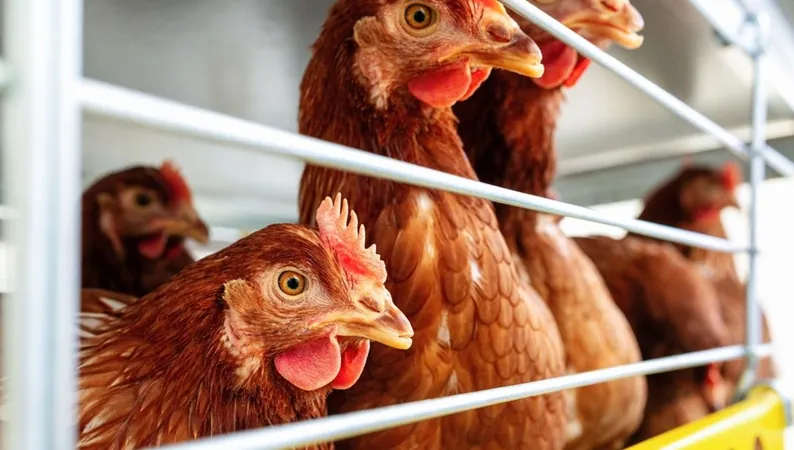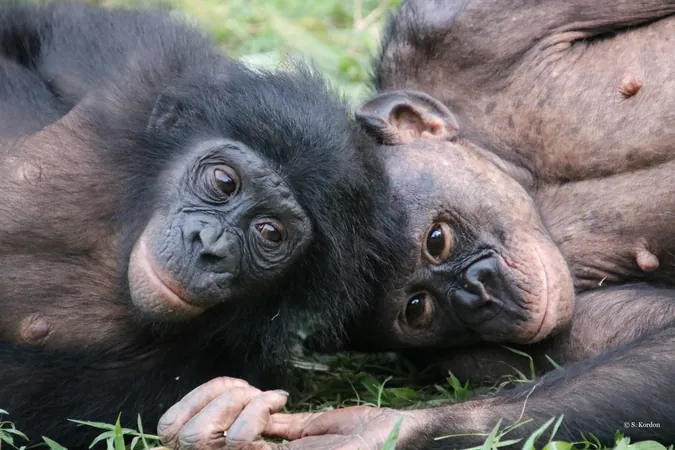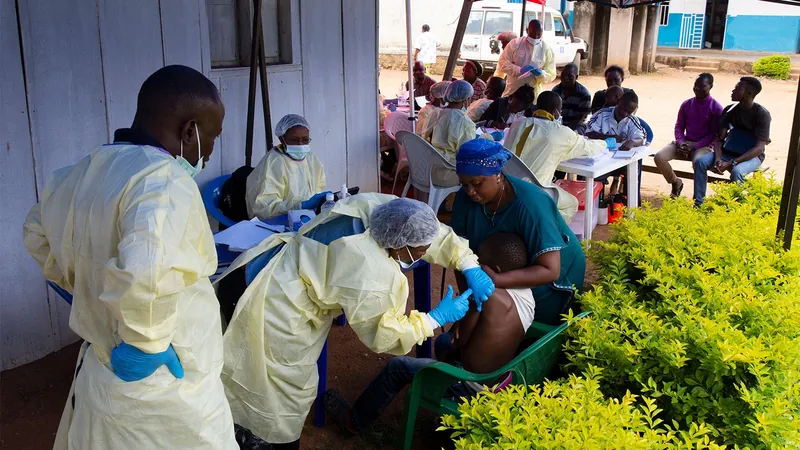
Urgent: Avian Influenza Prevention Zone Launched in Four UK Counties as Bird Flu Outbreak Sparks Concerns!
2024-12-15
Author: Daniel
The UK has officially declared an Avian Influenza Prevention Zone (AIPZ) across four counties—East Riding of Yorkshire, Lincolnshire, Norfolk, and Suffolk—following confirmed cases of bird flu in both wild and captive birds.
These counties are critical to the nation’s poultry industry, boasting numerous intensive farms that house at least 40,000 birds each, creating an environment ripe for the rapid spread of avian influenza. With bird flu outbreaks becoming more common, experts are urgently emphasizing biosecurity measures to protect domestic fowl and prevent further transmission.
Despite the declarations, health authorities maintain that the risk to human health remains low. Nonetheless, the UK's Chief Veterinary Officer, Christine Middlemiss, has mandated strict protocols for bird keepers and poultry farmers in the affected regions.
Key requirements include: - Comprehensive cleansing and disinfection of clothing and footwear before and after contact with poultry. - Regular disinfection of all equipment and vehicles used on farms. - Continuous cleaning and disinfecting of bird housing facilities. - Implementation of strict controls on the movement of people, equipment, and birds to minimize potential contact with wildlife. - Ensuring feed and water are kept away from wild birds, and that captive birds are not allowed near open bodies of water. - Increased efforts to control vermin, which can act as carriers of the virus.
These steps are designed to limit the interaction between farmed birds and wild populations, ultimately attempting to stave off any undetected infections from spilling into the domesticated bird population.
Aled Edwards, head of the Animal Plant Health Agency (APHA) in England, emphasized the importance of these new biosecurity measures: "Regardless of the size of your flock, enhanced biosecurity is crucial in combating this highly transmissible disease. Our dedicated scientists and veterinarians are working tirelessly to manage this threat."
While pet birds like budgies or parrots are generally not included in these preventative measures unless they live within a three-kilometer radius of infected premises, the situation could evolve rapidly. Bird owners in affected areas are strongly urged to adopt heightened biosecurity practices, remain vigilant for any symptoms of illness, and to report any suspicions to the APHA without delay.
Currently, the AIPZ will remain in effect until the government provides further notice. It's worth stressing that the UK government reports a "very low" risk to public health, and properly cooked poultry and poultry products, including eggs, are safe for consumption.
As bird flu continues to threaten avian health globally, experts are urging swift and serious compliance with these measures to safeguard both livestock and public health! Stay updated, and protect your birds!




 Brasil (PT)
Brasil (PT)
 Canada (EN)
Canada (EN)
 Chile (ES)
Chile (ES)
 España (ES)
España (ES)
 France (FR)
France (FR)
 Hong Kong (EN)
Hong Kong (EN)
 Italia (IT)
Italia (IT)
 日本 (JA)
日本 (JA)
 Magyarország (HU)
Magyarország (HU)
 Norge (NO)
Norge (NO)
 Polska (PL)
Polska (PL)
 Schweiz (DE)
Schweiz (DE)
 Singapore (EN)
Singapore (EN)
 Sverige (SV)
Sverige (SV)
 Suomi (FI)
Suomi (FI)
 Türkiye (TR)
Türkiye (TR)